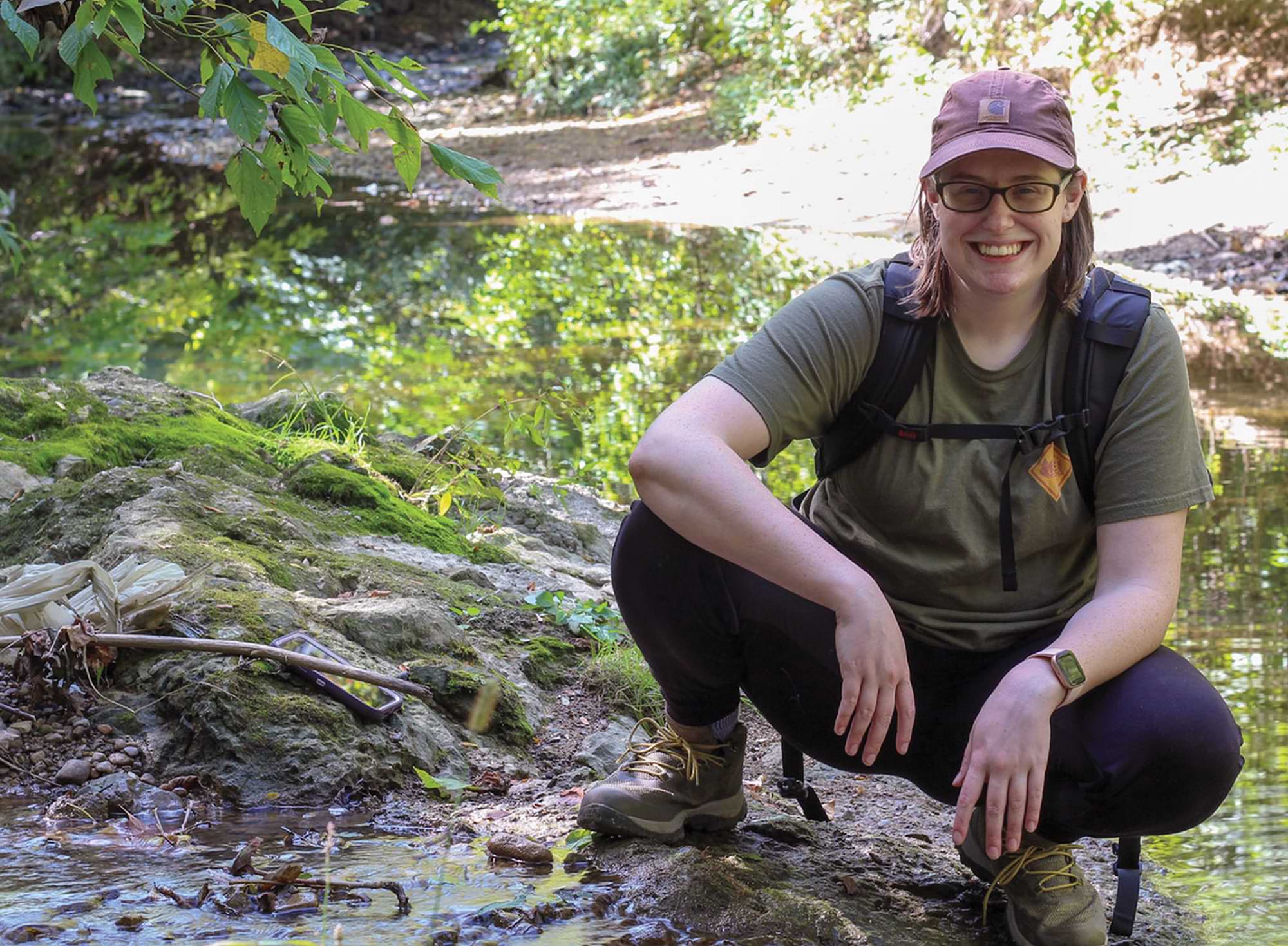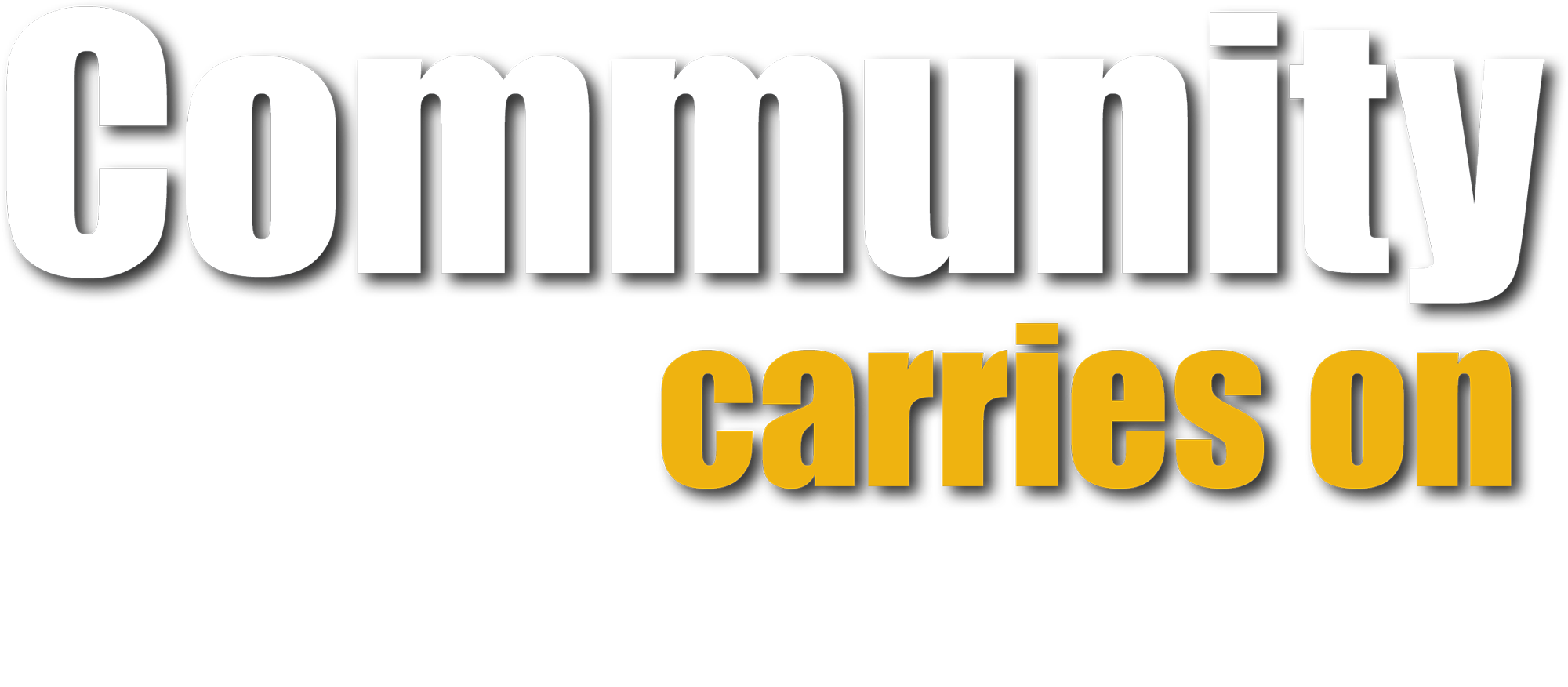

think peace studies is ultimately a study in how to be in community with one another. The peace studies program gave me a community to grow with, to celebrate with, and to grieve with,” said Caraline Feairheller, a 2019 graduate with a degree in peace studies and political science.
Feairheller has spent the past several years since graduation working for Manchester’s peace studies department, engaging in faith-based advocacy and nonprofit work in Washington, D.C., and attending Kent State University for political science and peace and conflict studies.
Immediately after graduating from Manchester, Feairheller stayed on as the peace studies coordinator, a one-year, full-time position responsible for coordinating extracurricular activities of the peace studies program. During that year, they collaborated with Director Katy Gray Brown ’91 to plan both on- and off-campus events for students and the community and assessed program activities in line with the United Nations Sustainable Development Goals (SDGs). Academic programs at Manchester, not limited to peace studies, continue to align with the SDGs; during the Fall 2022 semester, a series of Values, Ideas and the Arts presentations focused on various goals, including improving food security on campus and eradicating extreme poverty.
After a final year with the program – one that was eventually moved to remote work due to the COVID-19 pandemic – Feairheller moved to D.C. and began working with NETWORK Lobby for Catholic Social Justice as a policy communications associate. NETWORK, established in 1972, is a non-profit dedicated to advocating for federal policies that advance racial and economic justice.
“While D.C. was nice, I eventually found my way back to Ohio to attend graduate school at Kent State University in their political science and School of Peace and Conflict Studies program,” Feairheller said. “Along with grad school, I continue to work in the faith-based advocacy field; now I focus on immigration issues as a policy communications director.”
Their research at Kent State explores the contemporary operation of anti-LGBTQ+ legislation. They are looking at questions about how this legislation operates, how it is resisted and how it constructs transgender identities.
“On one hand this research is important to me because I want to expose how violence operates so it can be resisted. And it should be resisted because the culmination of what is in these policy proposals and their potential impacts is devastating,” Feairheller said.
On the other hand, Feairheller has found that the research process is also an opportunity to learn more about their own identity. “When I started this research, I was looking at the relationship between the Midwest and queerness because I am a person who is queer and from the Midwest. Much like my own identity, the research process evolves over time. In doing this research I’ve been exposed to authors and researchers whose own work on identity and place have shaped or challenged my own. It remains personally important because the research process has given me the language I needed to describe my own understandings of queerness and resistance.”
The five years Feairheller spent at Manchester significantly impacted both their career path and their broader outlook on life. During their time as a student, they interned in Louisville with Kentuckians for the Commonwealth through the Shepherd Higher Education Consortium on Poverty. This summer internship experience working with activists was pivotal in their undergraduate career.
“It helped me learn how change can happen, which I think is what drives me to continue to do this research,” they said. “What peace studies does so well is provide its students, like me, with a lens for understanding the violence in the world but also the creative ways it’s been resisted. I think no matter where I’ve been or what type of work I’ve been doing, I continue to carry this lens with me.”
Feairheller is passionate about the work peace studies does to create community – within the program and in collaboration with others in the larger community and across the world.
“There’s so much work that goes into maintaining a community, especially one that travels across time, place, and generations. Having five years to learn what community looks like, feels like, and can be is something that I try to carry into every interaction I have. Professionally and academically, peace studies has done a lot for me. But most importantly, peace studies taught me how to be in a community of peacemakers and make change.”